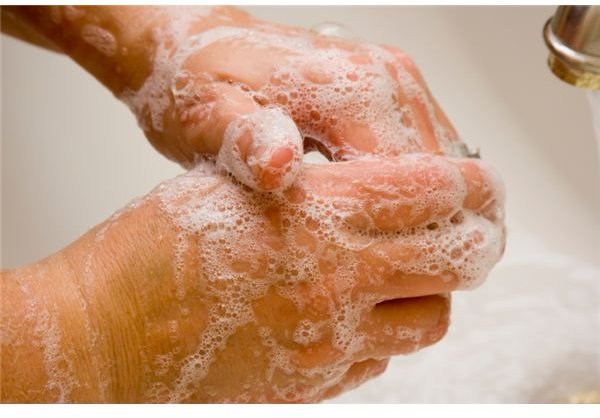A Review of Cures for OCD
Obsessive compulsive disorder (OCD) is an anxiety disorder characterized by a combination of uncontrollable recurrent and intrusive
thoughts or obsessions and repetitive behaviors or compulsions, with a person indulging in compulsions as a possible solution to the obsessions.
OCD manifests itself in a number of ways. The most common types include checking and re-checking things such as a locked door, hoarding of useless items out of fear that such items would be needed one day, excessively focusing on certain body parts fearing disorder, extreme fear of sickness, excessive washing of hands fearing germ contamination and obsession with symmetry.
The two major treatments used as possible cured for OCD are cognitive behavior therapy and SSRI/SRI medication.
Image Credit: flickr.com/Arlington County
Cognitive Behavior Therapy (CBT)
Cognitive behavior therapy (CBT) attempts to treat OCD in two ways:
The Exposure-Response Prevention (E/RP) approach of CBT entails exposing the person to the undesired behavior until the fear, anxiety, or unpleasantness no longer becomes an issue, which is followed by adding “Ritual Prevention” or blocking the usual habit. For instance, when a person obsessed with the fear of germs through dirt indulges in the compulsive behavior of washing hands repeatedly, CBT first introduces dirt to the patient, increasing the exposure gradually, and then makes the patient rub his or her hands on dirt. This removes the fear of dirt and germ contamination and makes the patient understand that washing hands repeatedly is not necessary.
The Cognitive Therapy (CT) approach of CBT, usually administered along with the E/RP approach challenges the assumptions made by the patient, and thereby demolishes the basis of the patient’s obsessions. For instance, CT aims to make the patient realize that his or her fear regarding germs from dust is irrational and exaggerated.
The use of CBT approaches reduces the symptoms of OCD by about 50 to 80 percent.
Apart from CBT, group therapy and family therapy can also be helpful.
Medication
Selective serotonin reuptake inhibitors (SSRIs) such as clomipramine block the re-absorption of the brain neurotransmitter serotonin and serve as effective anti-depressants that can cure OCD symptoms. In cases where SSRIs fail to have affect, serotonin reuptake inhibitors (SRIs) such as Fluoxetine (Prozac), paroxetine (Paxil), and sertraline (Zoloft) are used. SSRIs are the preferred medication because they have fewer side effects related to sleep and sex drive compared to SRIs.
Extreme cases of OCD may require the use of tranquilizers to relax the muscles and thereby reduce compulsive urges.
Medication completely cures the symptoms of OCD in only about 20 percent of the cases, and in the remaining 80 percent it is only a partial cure.
Natural Cure Approaches

Two possible natural cures for OCD include inositol and St John’s wort.
Inositol boost the ability of nerve cells to transmit information from one neuron to another, and preliminary research suggests consumption of inositol results in lower levels of OCD.
St. John’s wort or hypericum perforatum is a popular herbal treatment, and like SSRI medications increase serotonin levels. Advocates of St. John’s wort claim it is more effective than SSRIs.
Research on the effectiveness of such natural cures as OCD treatment options is not conclusive, as studies throw up conflicting results. Another issue with using herbal remedies is the lack of regulated standards regarding quantities or content.
Image Credit: flickr.com/Smoobs
Psychosurgery
Extreme cases of OCD, where the patient does not respond to CBT, medications, or other treatment methods might require psychosurgery, that is disabling certain parts of the brain with electrodes. Patients who undergo this OCD treatment method report significant amelioration of the condition.
References
- University of Michigan Depression Center. “The Anxiety Disorders.” Retrieved from https://www.depressioncenter.org/depressive_disorders/anxiety.asp on 24 November 2010.
- Obsessive Compulsive Disorder. https://www.mayoclinic.com/health/obsessive-compulsive-disorder/DS00189/DSECTION=treatments-and-drugs
- WebMD. Obsessive-Compulsive Disorder (OCD) - Home Treatment. https://www.webmd.com/anxiety-panic/tc/obsessive-compulsive-disorder-ocd-home-treatment
